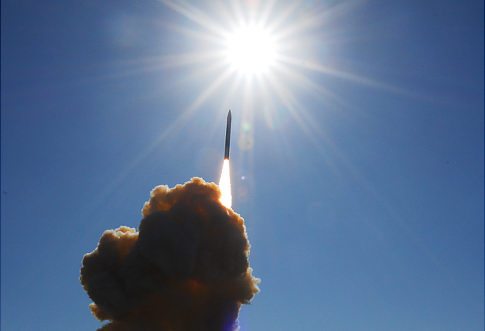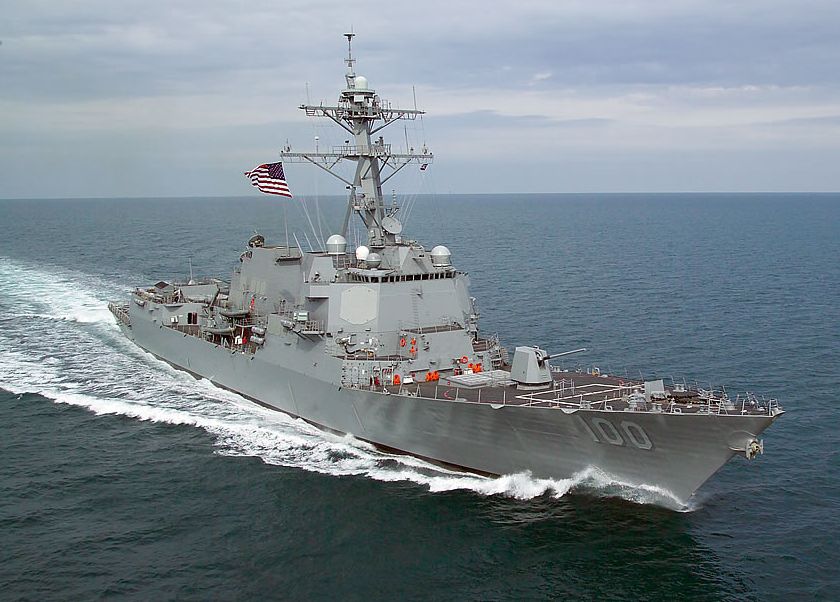The United States is pushing Gulf countries to develop missile defense plans, amid what they see is a rising threat from Iran, US officials said Friday.
“It’s the United States’ goal, to encourage the GCC countries to develop this missile defense architecture, because… to truly protect the region by missile defense, it requires a regional approach,” a senior US official said ahead of talks with the six-nation Gulf Cooperation Council.
“To be able to defend against a missile in your territory often requires radars and other types of capabilities outside your territory.”
Defense Secretary Leon Panetta had been due to attend the New York talks alongside US Secretary of State Hillary Clinton held on the sidelines of the UN General Assembly, but bad weather forced him to abandon his travel plans.
The US official said Washington has already expressions of interest from some of the Gulf nations in developing missile defense capabilities and they hoped to have some announcements of contracts in the coming months.
The discussions are taking place within the framework of a new strategic cooperation forum set up in March, which has also led to the first joint maritime exercise held which involved 12 navies and some 30 countries.
“I think that the important thing to understand is that if they are buying US missile defense equipment, it’ll make it easier to knit that together, because by its nature, it’ll be more interoperable,” the US official said.
“So we want to encourage them to buy equipment that can be knitted together.”
Asked whether the plan was also to protect against any missile threat from Iran, he said “our aim is to help our Gulf partners with their defense needs. And so there is a missile threat that they face. We want to help them face that threat as best we can.”
A second US administration official added that the “focus is to ensure the free flow of commerce in the straits overall, which is in all countries’ interests.
“Obviously, the GCC countries have been concerned about Iran’s statements … that would threaten the free flow of commerce of the area.”
The United States was “concerned about any disruption of shipping in the region by Iran or its surrogates,” he added.











